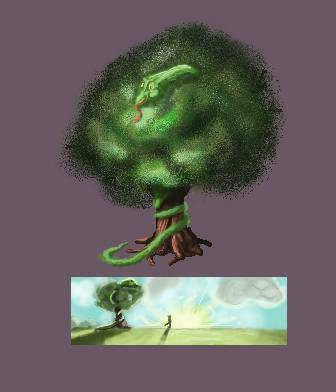kobnach wrote:(I'm kind of equating them to the tomte, who like porridge with butter, particularly on special holidays.)
From the likeness in sound, I suspected that they may actually be related, and, interestingly enough, some research shows that that may actually be true. "Tomte" is based on the Swedish word "tomt" (which has a root meaning of "lot" or "homestead" or similar), and "domovoi" (домовой) appears to be based on "domasnij" (
домашний), which, according to Wiktionary, has a very similar meaning, and is also related to "dom" (дом), which, apart from now sounding extremely similar to "tomt", is, apparently, traceable back to Proto-Indo-European "*domo-/*domu" (which, I guess, is also cognate to Latin "domus", the root of the English word "domestic"), which has the same meaning and almost
has to be cognate with Swedish "tomt".
Wikipedia tells that "in other European folklore, there are many beings similar to the tomte, such as the Scots brownie, English Hob, the German Heinzelmännchen or the Russian domovoi", from which it is very hard to tell whether they are
actually related, or just similar beings of independent invention, but also, of the Hob, that "as well as the brownie, another cognate exists in the Scandinavian tomte or nisse; all of which are thought to be derived from the household gods of olden times, known in England as the cofgodas", which seems to indicate that they are, in fact, related. Seeing how the Varangians have had, in many aspects, a profound impact on Slavic culture, I guess it wouldn't be completely unthinkable that the domovoi is a Scandinavian export, but I can't really say that I'm able to find any conclusive evidence to support it.






